
Igino Giordani: This is the moment for women
 “We could say that it is the moment for women: not because the media endlessly focus on divorce and VIP trends but because of the fact that more than ever today, coexistence and the fruit of man-woman dialectics call for the presence of those who are, or will be mothers, naturally or spiritually. The social body as never before suffers the lack of full health and normal feminineness: it is as if its flight was done with two wings, one of which was too overwrought, and the other lifeless, which make its progress very disorderly. People are aware that this is the time for woman, but of a womanly woman, and not a contamination or contrast of man: almost like a feminised man. The history of the last centuries in which the strong man – the superman – had been forged in disdain for feminineness, was affected by excessive masculinity, not counterbalanced by feminineness. The same but contrary effect of non-integrated feminineness is imbued by a sense of virility. Women today have voting rights, gained managing roles in offices, and entered into public life. But their impact remains dull, like before or even worse since by entering the political battles they align with the males, taking on their ambitions, and bowing to their methods: they have become reduced-performance males. Their votes, without outstanding discrimination are added to those of men since the latter’s game continues as before, without corrections, integration, or being enlightened by the other, which is an indispensable factor. And so the flight (or plunge) continues with only one wing. Just think of what Mary’s fascination was like, and what it still is today – her name alone signifies the sublimation of woman who was made to become the grafting point of the divine onto the human, and as the ianua coeli, door to Heaven, the rise of the human towards the divine. Societies today call for the presence of the woman, so that she could imbue in society the demands for maternity, life, and therefore, of material and moral nutrition, education, love in peace and work, of the family gathered in pureness and thus, the condemnation of factions and wars. This is because woman by nature stands for generation of life and not production of death, for the good of the offspring which are the State and the Church of the future, the same humanity.” (Igino Giordani, “Fides” publication, 1961)
“We could say that it is the moment for women: not because the media endlessly focus on divorce and VIP trends but because of the fact that more than ever today, coexistence and the fruit of man-woman dialectics call for the presence of those who are, or will be mothers, naturally or spiritually. The social body as never before suffers the lack of full health and normal feminineness: it is as if its flight was done with two wings, one of which was too overwrought, and the other lifeless, which make its progress very disorderly. People are aware that this is the time for woman, but of a womanly woman, and not a contamination or contrast of man: almost like a feminised man. The history of the last centuries in which the strong man – the superman – had been forged in disdain for feminineness, was affected by excessive masculinity, not counterbalanced by feminineness. The same but contrary effect of non-integrated feminineness is imbued by a sense of virility. Women today have voting rights, gained managing roles in offices, and entered into public life. But their impact remains dull, like before or even worse since by entering the political battles they align with the males, taking on their ambitions, and bowing to their methods: they have become reduced-performance males. Their votes, without outstanding discrimination are added to those of men since the latter’s game continues as before, without corrections, integration, or being enlightened by the other, which is an indispensable factor. And so the flight (or plunge) continues with only one wing. Just think of what Mary’s fascination was like, and what it still is today – her name alone signifies the sublimation of woman who was made to become the grafting point of the divine onto the human, and as the ianua coeli, door to Heaven, the rise of the human towards the divine. Societies today call for the presence of the woman, so that she could imbue in society the demands for maternity, life, and therefore, of material and moral nutrition, education, love in peace and work, of the family gathered in pureness and thus, the condemnation of factions and wars. This is because woman by nature stands for generation of life and not production of death, for the good of the offspring which are the State and the Church of the future, the same humanity.” (Igino Giordani, “Fides” publication, 1961)

Living the Gospel: 4 chairs and 2 pumpkins
 “We got to know a family from Burundi who in the current terrible situation in their country, about which we hear very little, have left the country like many other families and come to Kampala where we live,”write us from Uganda. “The husband went back to Burundi so as not to lose his job and to be able to pay the rent on the house in Uganda and buy food for their children, including a three week old baby. “His wife had not been able to stay in Burundi when shooting began again in their city, as she had too vivid memories of all that had happened in the 1990s during the civil war. Then she had miraculously escaped death because the Headmaster of the school she attended had twice paid off soldiers who had come to the school on two consecutive days to look for her and the other girls. So, when the first signs of trouble began, the family had decided to go, leaving all they had behind in Bujumbura. They had brought other relatives with them, so there were 8 of them in all. “We heard that the rent did not cover furniture and that they had only 4 chairs in the living room: what could we do? We thought that four of our folding chairs, used occasionally when many people come to our house, would be made better use of in their house, so that at least everyone could sit and eat comfortably. “As we left we cut two pumpkins from the garden to take with us. We had planted a number of them almost by chance a few months earlier and they had picked up after the dry season and had been extremely useful in recent weeks! Moreover, just the day before we had received some food supplies. Providence has never been lacking over the last few months and it is truly by sharing it that the Gospel promise “give and gifts will be given to you” comes true. So we took two kilos of sugar, two of rice, one kilo of salt and a litre of oil and went to see the family. “Their house was new and clean and there were some unusual trimmings on the ceiling as well as a nice light fitting. But there were no beds in the bedrooms, only mattresses. In the living room there was a small round plastic table and four chairs, a little television in the corner on the floor with an antenna hanging over visitors’ heads. We could not see any toys or other furniture. “We went in with the chairs and spent two very happy hours with the family getting to know them better and sharing past memories and hopes for the future. The children are not going to school at the moment. The older ones want to go to university but it is much more expensive in Uganda than Burundi so it is not possible for now. Finding work is difficult too, as many people are unemployed and it is almost impossible for foreigners if you don’t know someone. What is more they don’t speak luganda, the local language, and English is not their mother tongue either. But they said “… We trust in God!”. “It was already 7.30 in the evening and we needed to go home. We all said goodbye. They were so happy we had come but as soon as we asked them to keep the chairs, and return them when they left that house, their faces lit up and they thanked us again and again! Before getting into the car they wanted to give us their blessing! On the way home I thought that four ordinary chairs and two pumpkins, once given, can fill the hearts, both of those who receive and those who give, with joy…” (S.M. Uganda)
“We got to know a family from Burundi who in the current terrible situation in their country, about which we hear very little, have left the country like many other families and come to Kampala where we live,”write us from Uganda. “The husband went back to Burundi so as not to lose his job and to be able to pay the rent on the house in Uganda and buy food for their children, including a three week old baby. “His wife had not been able to stay in Burundi when shooting began again in their city, as she had too vivid memories of all that had happened in the 1990s during the civil war. Then she had miraculously escaped death because the Headmaster of the school she attended had twice paid off soldiers who had come to the school on two consecutive days to look for her and the other girls. So, when the first signs of trouble began, the family had decided to go, leaving all they had behind in Bujumbura. They had brought other relatives with them, so there were 8 of them in all. “We heard that the rent did not cover furniture and that they had only 4 chairs in the living room: what could we do? We thought that four of our folding chairs, used occasionally when many people come to our house, would be made better use of in their house, so that at least everyone could sit and eat comfortably. “As we left we cut two pumpkins from the garden to take with us. We had planted a number of them almost by chance a few months earlier and they had picked up after the dry season and had been extremely useful in recent weeks! Moreover, just the day before we had received some food supplies. Providence has never been lacking over the last few months and it is truly by sharing it that the Gospel promise “give and gifts will be given to you” comes true. So we took two kilos of sugar, two of rice, one kilo of salt and a litre of oil and went to see the family. “Their house was new and clean and there were some unusual trimmings on the ceiling as well as a nice light fitting. But there were no beds in the bedrooms, only mattresses. In the living room there was a small round plastic table and four chairs, a little television in the corner on the floor with an antenna hanging over visitors’ heads. We could not see any toys or other furniture. “We went in with the chairs and spent two very happy hours with the family getting to know them better and sharing past memories and hopes for the future. The children are not going to school at the moment. The older ones want to go to university but it is much more expensive in Uganda than Burundi so it is not possible for now. Finding work is difficult too, as many people are unemployed and it is almost impossible for foreigners if you don’t know someone. What is more they don’t speak luganda, the local language, and English is not their mother tongue either. But they said “… We trust in God!”. “It was already 7.30 in the evening and we needed to go home. We all said goodbye. They were so happy we had come but as soon as we asked them to keep the chairs, and return them when they left that house, their faces lit up and they thanked us again and again! Before getting into the car they wanted to give us their blessing! On the way home I thought that four ordinary chairs and two pumpkins, once given, can fill the hearts, both of those who receive and those who give, with joy…” (S.M. Uganda)
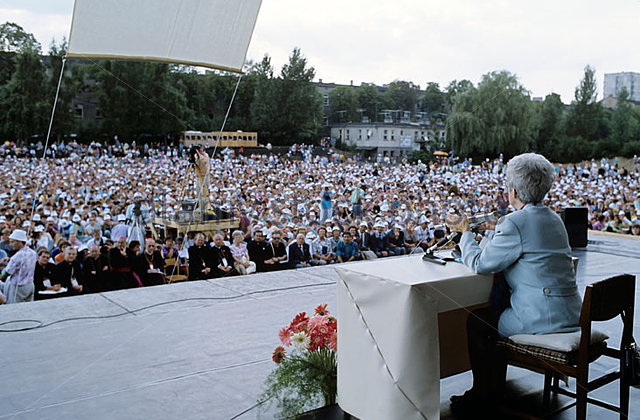
Chiara Lubich: may peace return
 “What should not have happened, has happened: a terrible war has begun and the whole world is holding its breath, fearing it might spread and involve other nations.” It was a few weeks after the US invasion of Iraq, which took place on 17th January 1991, in response to the Iraqi invasion of Kuwait on 2nd August 1990. Chiara Lubich wrote on the subject of peace for Città Nuova magazine. This is taken from an editorial in February 1991. “Despite so many prayers, God has permitted the war. Why? Because the will of those responsible for it did not coincide with His will, expressed by the chorus of voices of those who were in the right. The Holy Father, the world’s greatest spiritual and moral authority, summed up these voices in his own constant appeals for peace, affirming the uselessness of war in resolving problems and its inevitable disastrous consequences. We can only hope that in the mysterious plans of God and because of His infinite love, He will draw something good from this immense evil. We don’t deserve it, but we know the immensity of His mercy. For this reason and above all so that peace may return, we will not stop praying. On the contrary! Now our “time out” to pray in unity for peace at noon each day will need to be even more intense. Moreover, we must all feel called in this moment to follow with determination a life style which corrects, at least within us (and through the communion of saints in many others), the mistake that has been made. Human beings have not done the will of God, the will of the God of peace. They did their own will. We must make every effort, as never before, to carry out the will of God perfectly. “Not my will but yours be done”. Today these words of Jesus must acquire an altogether special importance for us. Compared to His word, everything else must become secondary. We shouldn’t give much importance in our lives to being healthy or sick, to studying or serving, to sleeping or praying, to living or dying. What matters is to make his will our own, to be his will lived out. This is the way we lived at the beginning of our Movement when, in the setting of another war, the Spirit gave us the light to understand the true value of things. Faced with the destruction caused by hatred, God revealed himself as the one ideal that does not pass, that no bomb could destroy. God Love, this was the great discovery, a spiritual bomb of such power that it made us literally forget all the bombs falling around us in the war. We discovered that beyond everyone and everything was God who is love, and his providence which makes all things work together for the good of those who love him. We identified the signs of his love in each circumstance, even in the pain of suffering. He loved us immensely. How could we love him in return? It is not the one who says Lord, Lord, who loves me, but the one who does my will.” We could love God by doing his will. Living like this we got used to listening with every greater attention to “the voice” within us, the voice of our conscience which emphasized the will of God expressed in different ways, through his Word, the duties of our state in life, circumstances, inspirations. We were certain that God would draw us into a divine adventure, at first unknown to us, where as both spectators and actors in his design of love, we could give the contribution of our own free will, moment by moment. A short while later he let us see something of our future, helping us see clearly the purpose for which the Movement was coming about: to fulfill Jesus’ prayer in his testament: “Father, may they all be one”, to work together to achieve a more united world. We can live like this now too. Have we experienced an aburpt and painful change? Do we have to run to air raid shelters often, just like in those far off days? Are we at times fearful, anguished, believing we are going to die? Or are we living life as we always did, with our daily tasks, far from danger? For all of us what matters is what is of most value: not one thing or the other, but God’s will. Let’s ‘listen’ putting his will in the first place in our heart, our memory, our mind; putting before all else, all our strength at his service. In this way we will rectify, at least in ourselves, the error that has been made. And Christ will stay in our hearts and we will therefore be more together, more united, more ‘one’, sharing everything, praying for one another and for peace to return.” Chiara Lubich: Attualità leggere il proprio tempo,[Current affairs: reading our own times] Città Nuova Ed., pag.85-87. Originally published in Città Nuova n. 4/1991
“What should not have happened, has happened: a terrible war has begun and the whole world is holding its breath, fearing it might spread and involve other nations.” It was a few weeks after the US invasion of Iraq, which took place on 17th January 1991, in response to the Iraqi invasion of Kuwait on 2nd August 1990. Chiara Lubich wrote on the subject of peace for Città Nuova magazine. This is taken from an editorial in February 1991. “Despite so many prayers, God has permitted the war. Why? Because the will of those responsible for it did not coincide with His will, expressed by the chorus of voices of those who were in the right. The Holy Father, the world’s greatest spiritual and moral authority, summed up these voices in his own constant appeals for peace, affirming the uselessness of war in resolving problems and its inevitable disastrous consequences. We can only hope that in the mysterious plans of God and because of His infinite love, He will draw something good from this immense evil. We don’t deserve it, but we know the immensity of His mercy. For this reason and above all so that peace may return, we will not stop praying. On the contrary! Now our “time out” to pray in unity for peace at noon each day will need to be even more intense. Moreover, we must all feel called in this moment to follow with determination a life style which corrects, at least within us (and through the communion of saints in many others), the mistake that has been made. Human beings have not done the will of God, the will of the God of peace. They did their own will. We must make every effort, as never before, to carry out the will of God perfectly. “Not my will but yours be done”. Today these words of Jesus must acquire an altogether special importance for us. Compared to His word, everything else must become secondary. We shouldn’t give much importance in our lives to being healthy or sick, to studying or serving, to sleeping or praying, to living or dying. What matters is to make his will our own, to be his will lived out. This is the way we lived at the beginning of our Movement when, in the setting of another war, the Spirit gave us the light to understand the true value of things. Faced with the destruction caused by hatred, God revealed himself as the one ideal that does not pass, that no bomb could destroy. God Love, this was the great discovery, a spiritual bomb of such power that it made us literally forget all the bombs falling around us in the war. We discovered that beyond everyone and everything was God who is love, and his providence which makes all things work together for the good of those who love him. We identified the signs of his love in each circumstance, even in the pain of suffering. He loved us immensely. How could we love him in return? It is not the one who says Lord, Lord, who loves me, but the one who does my will.” We could love God by doing his will. Living like this we got used to listening with every greater attention to “the voice” within us, the voice of our conscience which emphasized the will of God expressed in different ways, through his Word, the duties of our state in life, circumstances, inspirations. We were certain that God would draw us into a divine adventure, at first unknown to us, where as both spectators and actors in his design of love, we could give the contribution of our own free will, moment by moment. A short while later he let us see something of our future, helping us see clearly the purpose for which the Movement was coming about: to fulfill Jesus’ prayer in his testament: “Father, may they all be one”, to work together to achieve a more united world. We can live like this now too. Have we experienced an aburpt and painful change? Do we have to run to air raid shelters often, just like in those far off days? Are we at times fearful, anguished, believing we are going to die? Or are we living life as we always did, with our daily tasks, far from danger? For all of us what matters is what is of most value: not one thing or the other, but God’s will. Let’s ‘listen’ putting his will in the first place in our heart, our memory, our mind; putting before all else, all our strength at his service. In this way we will rectify, at least in ourselves, the error that has been made. And Christ will stay in our hearts and we will therefore be more together, more united, more ‘one’, sharing everything, praying for one another and for peace to return.” Chiara Lubich: Attualità leggere il proprio tempo,[Current affairs: reading our own times] Città Nuova Ed., pag.85-87. Originally published in Città Nuova n. 4/1991

Bruni: Happiness would be too little.
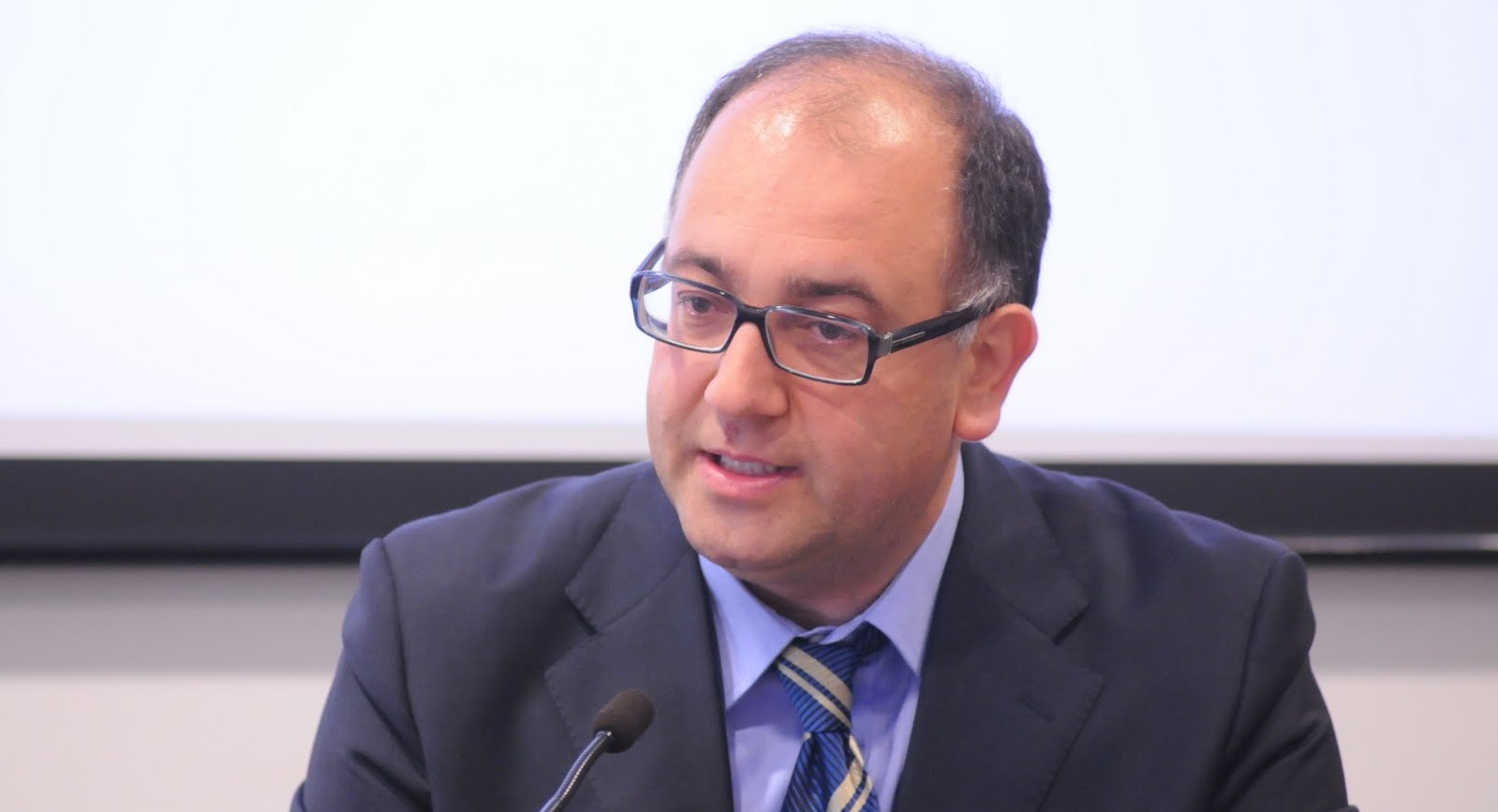 “One day I’ll tell you, I’ve given up my happiness for you.” This is the first line of a song by Stadio, the recent winner at the Sanremo Italian Song Festival. It gives us the opportunity to think about our own happiness and that of the people around us. Society has placed the search for personal happiness at the core of own humanism, banishing to the end of the line other values, including the happiness of others – unless they are useful for increasing our happiness. And we no longer have mental categories for understanding the decisions (that still exist) of those who knowingly sacrifice their own happiness for the happiness of another. […] Happiness has had a long history. Christian humanism which innovated many elements of the Greek culture, proposed the idea of “limited happiness” wherein the pursuit of our personal happiness was never considered the ultimate goal of life, because it was subordinate to other values, such as the happiness of the community, the family or the eternal life. For centuries we believed that the only happiness worthy of being achieved was that of others, of everyone. […]
“One day I’ll tell you, I’ve given up my happiness for you.” This is the first line of a song by Stadio, the recent winner at the Sanremo Italian Song Festival. It gives us the opportunity to think about our own happiness and that of the people around us. Society has placed the search for personal happiness at the core of own humanism, banishing to the end of the line other values, including the happiness of others – unless they are useful for increasing our happiness. And we no longer have mental categories for understanding the decisions (that still exist) of those who knowingly sacrifice their own happiness for the happiness of another. […] Happiness has had a long history. Christian humanism which innovated many elements of the Greek culture, proposed the idea of “limited happiness” wherein the pursuit of our personal happiness was never considered the ultimate goal of life, because it was subordinate to other values, such as the happiness of the community, the family or the eternal life. For centuries we believed that the only happiness worthy of being achieved was that of others, of everyone. […] 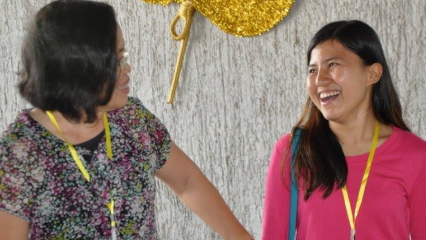 In the modern age this ancient and deeply rooted idea of happiness went into a deep crisis and the pre-Christian idea of happiness as the ultimate and absolute goal of life, began to gain ground. […] The contemporary economy with its Anglo Saxon model was a perfect match for the idea of personal happiness. […] As far as the economy is concerned, the earth is inhabited only by people who want to achieve complete personal happiness. Such a description of human choices explains many things, but is useless or misleading when it comes to explaining those few but decisive choices that are connected to our moral and spiritual life. When Abraham headed for Mount Moriah with his son Isaac, he certainly wasn’t thinking of his own happiness […] but certainly was following a most sorrowful voice that led him on. Like him, many people still continue to climb the Mount Moriahs of their lives. There are many good things in our life that are not measured against our personal happiness, and some not even against the happiness of others. The important choices are most often tragic choices. We don’t choose between a good and an evil, but between two goods. There are other choices in which we step off the calculator. And other moments in which we are not even able to choose, but only mutter a submissive “yes”. The world is filled with people who in some decisive moments do not seek their own happiness. […]
In the modern age this ancient and deeply rooted idea of happiness went into a deep crisis and the pre-Christian idea of happiness as the ultimate and absolute goal of life, began to gain ground. […] The contemporary economy with its Anglo Saxon model was a perfect match for the idea of personal happiness. […] As far as the economy is concerned, the earth is inhabited only by people who want to achieve complete personal happiness. Such a description of human choices explains many things, but is useless or misleading when it comes to explaining those few but decisive choices that are connected to our moral and spiritual life. When Abraham headed for Mount Moriah with his son Isaac, he certainly wasn’t thinking of his own happiness […] but certainly was following a most sorrowful voice that led him on. Like him, many people still continue to climb the Mount Moriahs of their lives. There are many good things in our life that are not measured against our personal happiness, and some not even against the happiness of others. The important choices are most often tragic choices. We don’t choose between a good and an evil, but between two goods. There are other choices in which we step off the calculator. And other moments in which we are not even able to choose, but only mutter a submissive “yes”. The world is filled with people who in some decisive moments do not seek their own happiness. […]  Happiness, truth, justice and faith are all primary goods that can never be reduced to only one – even if that one is happiness. We can have a clear idea of which choice will make us happier, we can include in that happiness nearly all the beautiful things of life even the highest, but in spite of this we can freely decide not to choose our happiness when other values come into play and call to us. In that case we might learn a new word: joy which, unlike happiness, never be sought but only accepted as a gift. Anybody who ever left their mark on this world wasn’t pursuing their own personal happiness. They would have considered that too little. Sometimes they found it but never stopped to grab onto it. They preferred to continue the walk following the voice that was leading them. At the end of the walk we won’t be left with the happiness we accumulated. If we’re left with anything, it will be things that are far more serious and true. We are much more than our personal happiness. […] Luigino Bruni La voce dei giorni/1 – Read Italian text (Source: Avvenire)
Happiness, truth, justice and faith are all primary goods that can never be reduced to only one – even if that one is happiness. We can have a clear idea of which choice will make us happier, we can include in that happiness nearly all the beautiful things of life even the highest, but in spite of this we can freely decide not to choose our happiness when other values come into play and call to us. In that case we might learn a new word: joy which, unlike happiness, never be sought but only accepted as a gift. Anybody who ever left their mark on this world wasn’t pursuing their own personal happiness. They would have considered that too little. Sometimes they found it but never stopped to grab onto it. They preferred to continue the walk following the voice that was leading them. At the end of the walk we won’t be left with the happiness we accumulated. If we’re left with anything, it will be things that are far more serious and true. We are much more than our personal happiness. […] Luigino Bruni La voce dei giorni/1 – Read Italian text (Source: Avvenire)
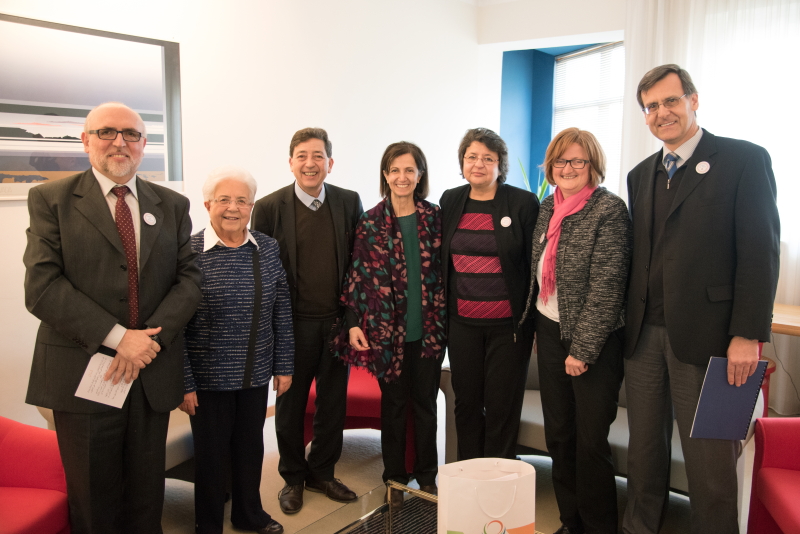
Sheikh Khaled Bentounès: I dream of a peace academy
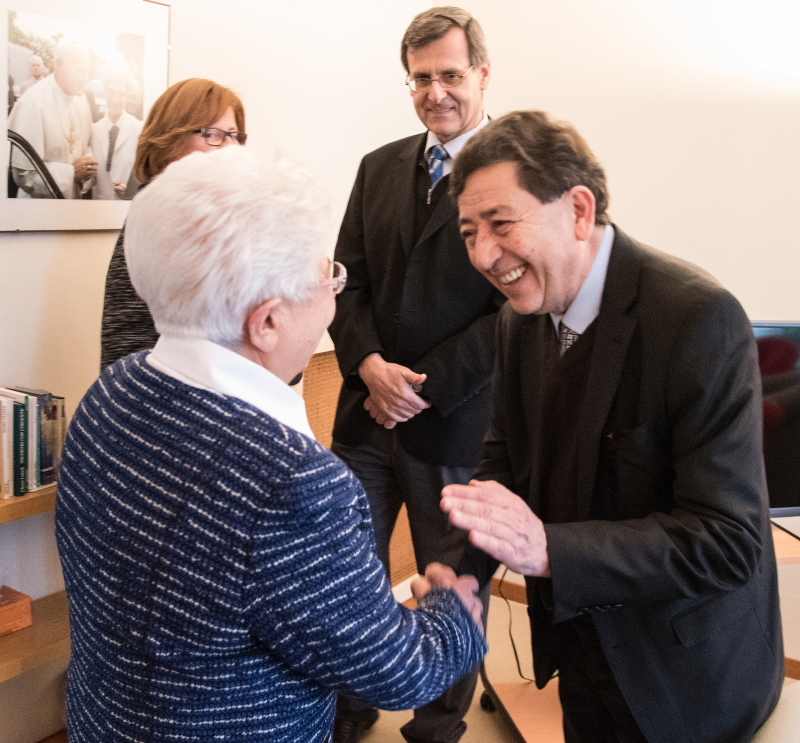 Khaled Bentounès, Sufi Master of the Alâwiiya, an Algerian born in 1949, is a man of peace. Living in France since the 1960s, he was behind many useful and worthwhile projects: from founding the Muslim Scouts of France, to l‘association Terres d’Europe; from the international talks at UNESCO for an Islam of peace, to the Alawaiya International Sufi Association which he founded, and an international mobilising campaign that the United Nations would institute a World LiveTogether Day. On February 26th, he visited the Focolare’s International Centre where he had a conversation with Focolare president, Maria Voce, and co-president Jesús Morán. During the course of the visit we had the opportunity to ask him a few questions. The first question was about his many projects over the years and now: “To give a quick answer to your question, I’m working on converting myself to the vision of a more fraternal world, more harmonious, a more just world. I work for this ‘circle’ of brotherhood, that I might see it before leaving this world, that I might see fulfilled the dream of a large portion of humanity. I don’t know if I’ll ever see it, but at least I have the assurance that I made a contribution.” When asked about the reasons for his hope in a time when brotherhood amongst peoples does not seem to have a place, Khaled Bentounès said that he found reasons to hope “first of all in the rich spritual legacy he received from his ancestors, for whom fraternity was inescapable. When I look at where I come from, I see but one uninterrupted line. “I happen to meet people involved in politics or the economy who describe a world heading to insoluble problems, and I say to them what our Masters say to us: ‘If they tell you that the world will end tomorrow, what should you do? Continue with your sowing and planting! Don’t worry too much!” So, we do what we have to do! We plant and we sow love, hope and brotherhood – whatever comes! Even if the end of the world will come tomorrow, as long as there is a minute left, you need to use it. Perhaps tomorrow will be another day, another world. And persevere!” Khaled Bentounès, who in 1986 had attended the meeting in Assisi with John Paul II and other religious leaders of the world, also has a knowledge of the Focolare that goes back to a meeting he had with Chiara Lubich in the 1980s. The relationship continued in France, up to his recent collaboration in assigning of the 2015 Chiara Lubich Fraternity Prize to the Vivre ensemble à Cannes Association which he promotes.
Khaled Bentounès, Sufi Master of the Alâwiiya, an Algerian born in 1949, is a man of peace. Living in France since the 1960s, he was behind many useful and worthwhile projects: from founding the Muslim Scouts of France, to l‘association Terres d’Europe; from the international talks at UNESCO for an Islam of peace, to the Alawaiya International Sufi Association which he founded, and an international mobilising campaign that the United Nations would institute a World LiveTogether Day. On February 26th, he visited the Focolare’s International Centre where he had a conversation with Focolare president, Maria Voce, and co-president Jesús Morán. During the course of the visit we had the opportunity to ask him a few questions. The first question was about his many projects over the years and now: “To give a quick answer to your question, I’m working on converting myself to the vision of a more fraternal world, more harmonious, a more just world. I work for this ‘circle’ of brotherhood, that I might see it before leaving this world, that I might see fulfilled the dream of a large portion of humanity. I don’t know if I’ll ever see it, but at least I have the assurance that I made a contribution.” When asked about the reasons for his hope in a time when brotherhood amongst peoples does not seem to have a place, Khaled Bentounès said that he found reasons to hope “first of all in the rich spritual legacy he received from his ancestors, for whom fraternity was inescapable. When I look at where I come from, I see but one uninterrupted line. “I happen to meet people involved in politics or the economy who describe a world heading to insoluble problems, and I say to them what our Masters say to us: ‘If they tell you that the world will end tomorrow, what should you do? Continue with your sowing and planting! Don’t worry too much!” So, we do what we have to do! We plant and we sow love, hope and brotherhood – whatever comes! Even if the end of the world will come tomorrow, as long as there is a minute left, you need to use it. Perhaps tomorrow will be another day, another world. And persevere!” Khaled Bentounès, who in 1986 had attended the meeting in Assisi with John Paul II and other religious leaders of the world, also has a knowledge of the Focolare that goes back to a meeting he had with Chiara Lubich in the 1980s. The relationship continued in France, up to his recent collaboration in assigning of the 2015 Chiara Lubich Fraternity Prize to the Vivre ensemble à Cannes Association which he promotes.  What is your relationship with the Focolare today? What are the common ideals? The sheikh responds: “I think that time has made this relationship fertile, and today’s meeting is also a fruit of the past. The friendship has remained constant. My presence here today in the International Centre and the meeting with the president, Maria Voce and with the co-president shows that it continues. We spoke about mutual trust, about the project of bringing forward a more fraternal vision of the world around us; about how Christian and Muslim spiritual movements can operate to offer their witness to those who wish to listen to them. We do not pretend to change the world alone, but it is a fact that there are links amongst different religious traditions that must be strengthened, so that we can walk together towards a common future that must be built each of us with the other, and not against the other.” He concluded the interview by sharing a dream: “There are science academies, mathematics academies, philosophy and military academies – and there are no peace academies. Why? Spiritual effort is not enough. We need to teach it. Peace is not something that descends from heaven, it is something around which you ‘work’. It is an existential state, a vision of the world, a behaviour. There is economic peace, there is social peace, there is political peace. Peace regards everything. Ecology is a form of peace with nature. We need to learn how you make peace. I have this project at heart! How do we link peace and art, peace and architecture? Can peace be transmitted to the future generations through art? How could we, through a solid economy, create knowledge sharing and wealth sharing in a way that is just, beyond land or country? This is a sacrosanct ‘work in progress’! This academy is not just a word, it is a concrete task that must accompany our efforts in every field.” He concluded: “I think this is our spirituality, which feeds the conscience to go farther, and to include everyone.”
What is your relationship with the Focolare today? What are the common ideals? The sheikh responds: “I think that time has made this relationship fertile, and today’s meeting is also a fruit of the past. The friendship has remained constant. My presence here today in the International Centre and the meeting with the president, Maria Voce and with the co-president shows that it continues. We spoke about mutual trust, about the project of bringing forward a more fraternal vision of the world around us; about how Christian and Muslim spiritual movements can operate to offer their witness to those who wish to listen to them. We do not pretend to change the world alone, but it is a fact that there are links amongst different religious traditions that must be strengthened, so that we can walk together towards a common future that must be built each of us with the other, and not against the other.” He concluded the interview by sharing a dream: “There are science academies, mathematics academies, philosophy and military academies – and there are no peace academies. Why? Spiritual effort is not enough. We need to teach it. Peace is not something that descends from heaven, it is something around which you ‘work’. It is an existential state, a vision of the world, a behaviour. There is economic peace, there is social peace, there is political peace. Peace regards everything. Ecology is a form of peace with nature. We need to learn how you make peace. I have this project at heart! How do we link peace and art, peace and architecture? Can peace be transmitted to the future generations through art? How could we, through a solid economy, create knowledge sharing and wealth sharing in a way that is just, beyond land or country? This is a sacrosanct ‘work in progress’! This academy is not just a word, it is a concrete task that must accompany our efforts in every field.” He concluded: “I think this is our spirituality, which feeds the conscience to go farther, and to include everyone.”
Events around the world celebrating the 8th anniversary of the death of Chiara Lubich on March 14, 2008
March 5, 2016, Brescia, Italy At the Catholic University: “Paul VI And Chiara Lubich, The Prophecy Of A Church That Makes Itself Dialogue Conference,” organised in collaboration with Paul VI Institute in continuation of the “Make Dialogue Days” held in Castel Gandolfo during November 2014. Among the presenters: Archbishop Vincenzo Zani, Secretary of the Congregation for Catholic Education; Lucia Albignente, who is in charge of the historical sector of the Chiara Lubich Centre; Father Angelo Maffeis, president of Paul VI Institute; Franco Monaco, politician and journalist; Alberto Lo Presti, professor of Political Theory at Sophia University Institute. March 6, 2016, Vicenza, Italy “Beyond The Borders Interreligious Conference” at Centro A. Onisto – Borgo S. Lucia, 51. Speakers: Emeritus Bishop of Aleppo, Armando Bortolaso; Imam of the Islamich community of Veneto, Dr Kamel Layachi and Rita Moussallem from the Focolare’s Centre for Interreligious Dialogue. The event will conclude with a flashmob in Piazza dei Signori. March 6, 2016, Olomouc, Czech Republic At the Catholic Chancery, a Cultural programme on the figure of Chiara Lubich as a sower of peace, followed by the celebration of the Mass by Archbishop Jan Graubner in cathedral. March 8, 2016, Ischia, Italy At the island’s Multi-Purpose Auditorium, 19:30, an evening programme on Work & Neigborhood. Civil engineer, Patience Mollè Lobè and business owner, Antonio Diana will be among the presenters. The moderator will be Carlo Cefaloni, Città Nuova journalist and expert on workplace dynamics. March 11, 2016, Caserta, Italy Music, testimonies and theater, at the Reggia di Caserta, 19:30, a reflection on the life and thought of Chiara Lubich titled: “The great attraction of the modern time”. Through the collaboration of the Diocese and the Directors of the Reggia. March 11, 2016, Rosario, Argentina A meeting at the Catholic University of Argentina (UCA) will reflect on the influence of the charism of unity on education. Presenters include: Dr Nieves Tapia, Coordinator of the Latin American Centre for Service Learning (CLAYSS). March 11-12, 2016, Fontem, Cameroon Workshop with music, drawing, poetry and theatre on “Chiara and Peace” for the students of 20 schools that belong to the Peace Education Project. Awards for the best pieces and for significant gestures of peace by the students themselves. The event will also be attended by civil authorities, traditional and religious authorities. March 12, 2016, Garden Grove, USA At Christ Cathedral, Garden Grove, holy Mass celebrated by Bishop Kevin William Vann, from the Diocese of Orange. In the afternoon, at the Academy Gym, a meeting on multiculturalism with representatives from various religions and ethnicities. March 12, 2016, Caracas, Venezuela Presentation of Chiara Lubich as a builder of dialogue and peace, who was awarded the 1996 UNESCO Peace Prize. The event will take place at the Institute For Religious Education (ITER) with people from different Churches. March 12, 2016, Brasilia, Brazil At the Paulist University (UNIP), at 15:30, 1996 UNESCO Peace Prize to Chiara Lubich. Followed by three moments of reflection: building peace in our personal relationships; in the dialogue amongst churches and religions and, in collaboration with the Institute of Immigration and Human Rights (IMDH), with mirgrants and refugees. Entrance fee: 1 kg of food for Haitian immigrants. March 12, 2016, Todi, Italy Tenth anniversary of the conferment of honorary citizenship on Chiara Lubich, at 15:30, in the Council Hall: “A Humanised Economy”, which will reflect on the Economy of Communion Project that was conceived by Chiara Lubich. Besides the Mayor of the city, interventions will be made by the President of the Region of Umbria, Cardinal Ennio Antonelli, Dr Giuseppe Argiolas and two business owners: Andrea Cruciani and Antonio Baldaccini. March 12, 2016, Castel Gandolfo, Italy At the Mariapolis Centre (Via de La Salle), 17:30, a programme of reflection on “The Culture Of Dialogue As A Means Of Peace.” The invitation is extended to ecclesiastical and civil leaders, and to the general public. Besides numerous testimonies, the keynote address will be given by Focolare president, Maria Voce. March 12, 2016, Manfredonia, Italy The 7th Edition of the Manfrodian Chiara Lubich Brotherhood Prize. In attendance: Vera Baboun, Mayor of Bethlehem and Pasquale Ferrara, diplomat and Secretary General of the European University Institute of Florence. Info March 12, 2016, Milan, Italy “Me Through You” Event, highlighting how the search for peace brings us closer to others and to our true self. The event will take place in three half-hour sections, each in a different location and at different times so that everyone can attend all the sections: at the Basilica of Saint Ambrose; Daughters of Mary Help of Christians Institute; Gonzaga Institute. Info March 12, 2016, Sarajevo, Bosnia Herzergovina An Open Day at the School of Theology dedicated to Chiara Lubich: “The Message of Dialogue and Peace.” Participants include people of Christian confessions, other faiths and people with no religious affiliation. Archbishop of Sarajevo, Cardinal Vinko Pujic, will celebrate Mass in cathedral. March 12, 2016, Genoa, Italy In the Minor Council Hall of the Piazza Ducale, a discussion on the Encyclical Letter Laudato si’ during a programme titled: “Religions Dialogue For Peace And the Environment.” Presenters will include: President of the Islamic Community of Genoa, Huseim salah; Chief Rabbi of Genoa, Giuseppe Momigliano; Buddhist monk, Gnanathilaka Mahauswewe; environmental engineer, Andrea Ponta; from the Focolare’s Centre for Interreligious Dialogue, Roberto Catalano March 12, 2016, Milan, Italy “Me Through You” Event, highlighting how the search for peace brings us closer to others and to our true self. The event will take place in three half-hour sections, each in a different location and at different times so that everyone can attend all the sections: at the Basilica of Saint Ambrose; Daughters of Mary Help of Christians Institute; Gonzaga Institute. Info March 12, 1016, Solingen, Germany At Zentrum Frieden Mariapolis Centre, “Living together in diversity”. The German Movement for Unity in Politics invites everyone to a roundtable with politicians and city administrators. It will be followed by a discussion on the integration of refugees. March 13, 2016, Kikwit, Democratic Republic of the Congo The city Mayor will the event at the Jesuit School where, in the presence of civil and religious authorities, a reflection on Peace and the Light of the Charism of Unity will be held. An event under the same title will be held the same day in Goma, Lubumbashi and in 16 cities of the Democratic Republic of the Congo March 13, 2016, Kinshasa, Democratic Republic of the Congo In the Great Hall of the Catholic University, in the presence of religious leaders from different Churches and religions, the academic and diplomatic world, a discussion on Chiara as Woman of Peace. An intervention will be given by the UNESCO representative in the Democratic Republic of the Congo. March 13, 2016, San Salvador, El Salvador Roundtable on “Peace that is born from dialogue” at the Università F. Gavidia, in the auditorium of Edificio E, 9:00 – 12:00 March 13, 2016, Lisbon, Portugal At the Franciscan Cultural Centre, a roundtable on ‘Chiara and Peace’ with members of the National Peace and Justice Commission, Dr Pedro Vaz Patto, President, Dr Graça Franco and António Marujo, journalists. March 13, 2016, Melbourne, Australia At the Mariapolis Centre, a celebration titled “Build peace in your own environment” , including testimonies on welcoming refugees. Presentation of Mark Ruse’s documentary film: “Politics for unity: making a world of difference”. Those in attendance include: Vicar General of the Diocese, Msgr Greg Bennet and leaders of ecclesial movements operating in Australia. March 13, 2016, Bujumbura, Burundi At Scheppen High School of Nyakabiga : “Merciful Like The Heavenly Father, Building Peace.” Presenters include: the Archbishop of Bujumbura, Evariste Ngoyagoye. March 13, 2016, Vung Tau, Vietnam Annual Mariapolis in Vietnam, in the presence of the Bishop, Joseph Tran Văn Toan, who will celebrate the Mass. The programme will also include the presentation of a documentary film on Chiara Lubich: Story, Charism, Culture. March 14, 2016, Houston, USA “Unity In Diversity” Interreligious Conference at 19:00 in the St. Thomas University, preceeded by the celebration of Catholic Mass in St. Basil Chapel by the Archbishop of Galveston-Houston, Cardinal Joseph Anthony Fiorenza. Presenters include: Cardinal Fiorenza; Imam Qasim Ahmed from the Islamic Institute; Rabbi Steve Morgen from the Beth Yeshurun Congregation; Therese Lee from the Focolare Movement. Info March 14, 2016, Manila, Philippines During the 50th anniversary celebration of the arrival of the Focolare in Asia, at De La Salle University, a symposium title: “The Charism Of Unity, A Timeless Legacy.” Numerous religious and civil leaders will present the reflections on Chiara Lubich’s contribution to the unity among Churches, religions, in society, an on Gospel reciprocity as a lifestyle that creates brotherhood. March 14, 2016, Rome, Italy At the Shrine of Our Lady of the Divine Love, at 18:30, Mass celebrated by Cardinal João Braz de Aviz, Prefect of the Congregation for Consecrated Life. Info March 14, 2016, Trent, Italy At the Demarchi Foundation, presenation of the book by I. Pedrini: “L’altro Novecento: nella testimonianza di Duccia Calderari.” Duccia’s biography, one of the first witness who followed Lubich in the birth of the Focolare, gives the opportunity to: Monica Ronchini, researcher; Giuseppe Ferrandi, Director of the History Museum of Trent; and Lucia Fronza Crepaz, ex-parliamentarian – to reflect on Chiara as a builder of peace. March 14, 2016, Havana, Cuba At Fray Bartolomé de las Casas Cultural Centre, a presentation of the figure of Chiara and peace, in the presence of Apostolic Nunzio, Archbishop Giorgio Lingua. Follwed by a concert by the Ars Longa Ancient Music Group. March 14, 2016, Verona, Italy At the Palazzo Gran Guardia: presentation of the “Chiara Lubich For A Culture Of Peace Brotherhood Prize, in the presence of Muslim theologian, Sharharzad Houshmand; Professor at the University of Padua, Giuseppe Milan; journalist Aurora Niosia March 16, 2016, Rome, Italy At the Chamber of Deputies, presentation of a manifesto with concrete proposals for peace, disarmament and industrial conversion.To receive it in Parliament, Youth for a United World who, with the Movement for Unity in Politics and participating schools, promoted the project, along with several deputies, the President of the Chamber, Boldrini and Exterior Minister, Gentiloni. March 16, 2016, Seville, Spain At the Metropolitan Seminary, Dr Manual Palma, vice director of the Theological Union of Seville, will speak on Jesus, Prince of Peace in the Spirituality of Chiara Lubich. Followed by a discussion on peace in Islam to be held by Imam Allah Bashar from the King Abdul Aziz Al Saud Mosque of Marbella, Malaga). He will also talk about his relationship with Chiara Lubich. March 18-20, 2016, Milan, Italy At the Fieramilanocity, during the international fair, an exposition on the Economy of Communion, presenting Lubich’s message of peace that continues to reach today’s world. Info March 19, 2016, Perth, Australia At Northbridge Square, screening of a video clip on “Peace” produced by young people, and a signature campaign appealing for peace #Signup4peace.
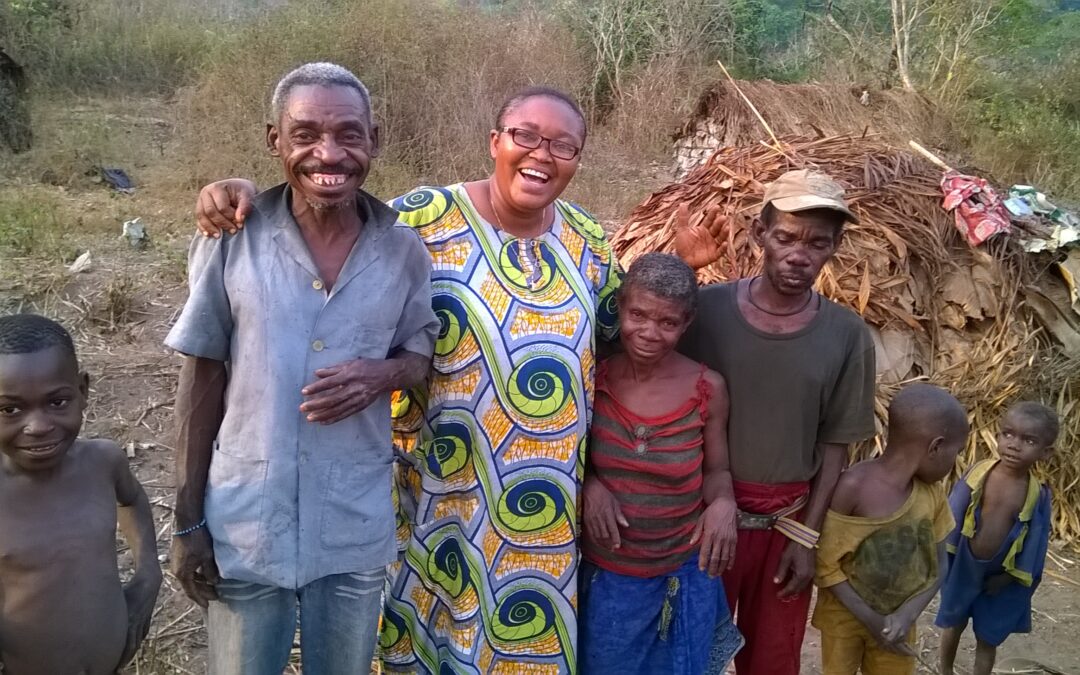
Nothing is the same in Bangui
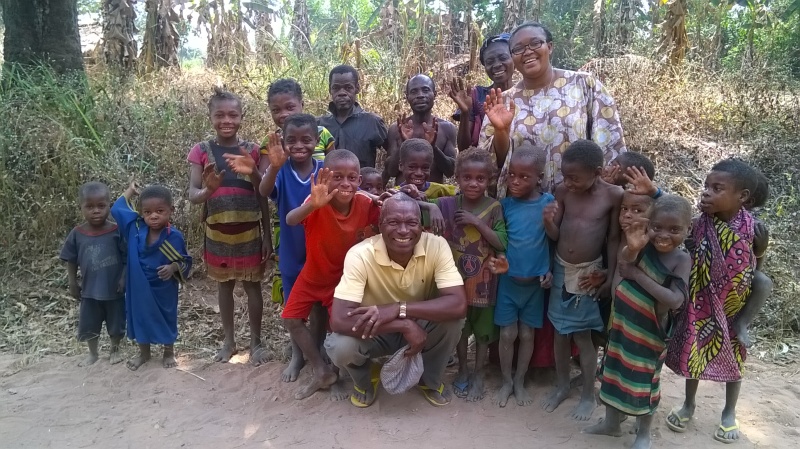 Nothing is the same in the capital city of the Central African Republic, after the visit of Pope Francis called it the “spiritual capital of the world.” Fidelia is a Congolese focolarina who has been living in Bangui for seven years. From 2012 until last September, she has seen with her own eyes the constant onslaught of armed clashes that over and over wiped out cities and villages, sowing seeds of horror and death everywhere. Now things appear quite changed and general opinion is that it was the visit of the Pope which marked the change in course. Fidelia comments: “Even in the provinces they’re talking about a before and an after. For example, the second round of presidential elections was held, and everything went fine. It was the same for the electoral campaign. But either one of them could have turned violent. Everyone is saying that when the Pope came, it was as if God himself had come, and so we can’t turn back now. They feel that the Pope took us ‘to the other shore’ and that we should continue moving forward all the way to true and lasting peace. Everyone seems convinced that if we want to reach social cohesian, forgiveness will be required, mercy and reconcilliation. You can sense a change of mentality beneath those words, a change of behaviour. Also the way we speak to one another – Muslims and Christians – has changed! Fidelia’s words are truly encouraging, not only for the Central African Republic, but for all the places in the world where the sound of weapons needs to stop so that solutions can be found through dialogue.
Nothing is the same in the capital city of the Central African Republic, after the visit of Pope Francis called it the “spiritual capital of the world.” Fidelia is a Congolese focolarina who has been living in Bangui for seven years. From 2012 until last September, she has seen with her own eyes the constant onslaught of armed clashes that over and over wiped out cities and villages, sowing seeds of horror and death everywhere. Now things appear quite changed and general opinion is that it was the visit of the Pope which marked the change in course. Fidelia comments: “Even in the provinces they’re talking about a before and an after. For example, the second round of presidential elections was held, and everything went fine. It was the same for the electoral campaign. But either one of them could have turned violent. Everyone is saying that when the Pope came, it was as if God himself had come, and so we can’t turn back now. They feel that the Pope took us ‘to the other shore’ and that we should continue moving forward all the way to true and lasting peace. Everyone seems convinced that if we want to reach social cohesian, forgiveness will be required, mercy and reconcilliation. You can sense a change of mentality beneath those words, a change of behaviour. Also the way we speak to one another – Muslims and Christians – has changed! Fidelia’s words are truly encouraging, not only for the Central African Republic, but for all the places in the world where the sound of weapons needs to stop so that solutions can be found through dialogue. 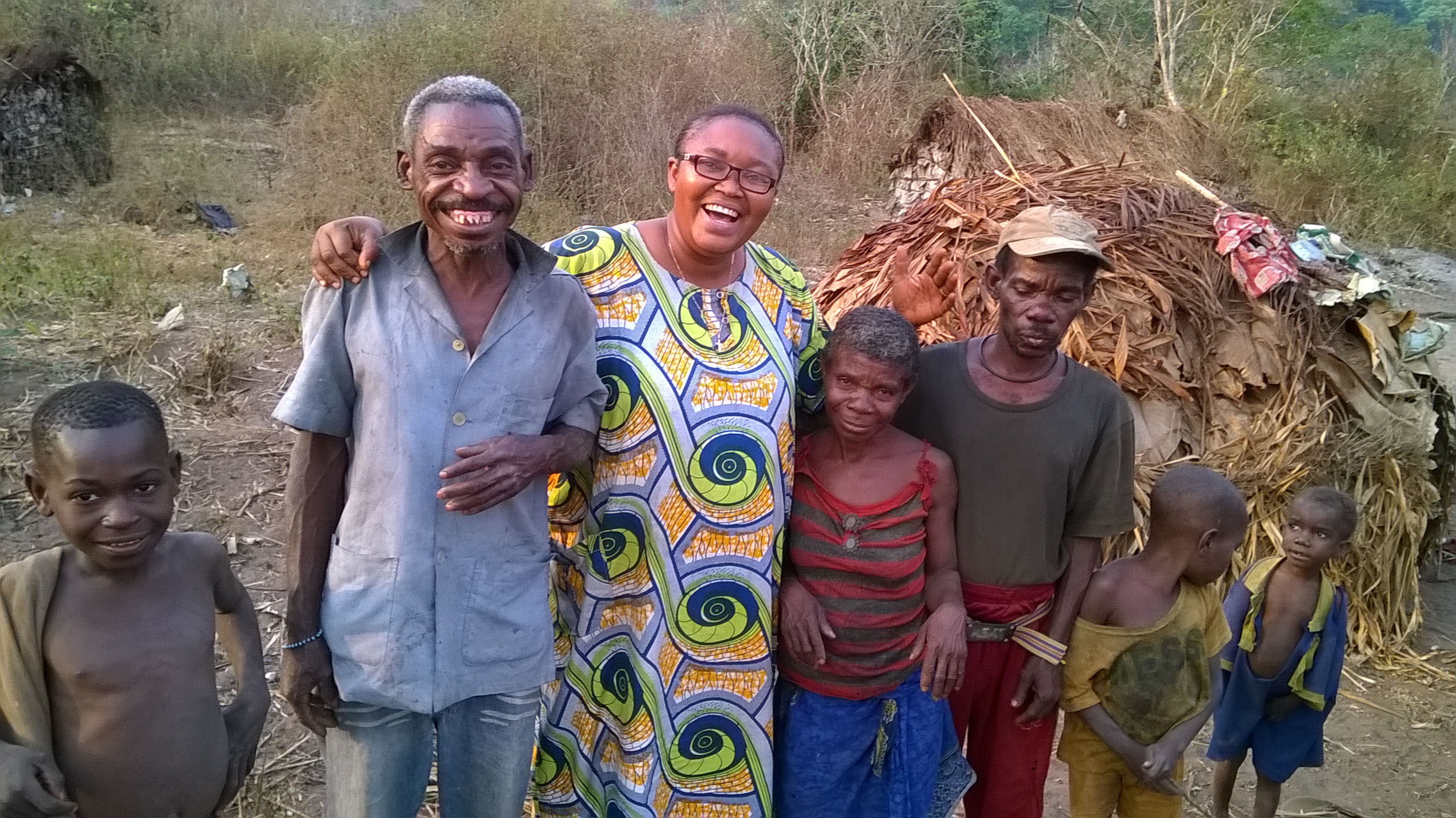 Fidelia also showed us other aspects of the life of Central Africa. She told us, for example, that in recent weeks she and three others of the Bangui had treked 400 km to reach the small city of Bambio, where a small community animated by the spirituality of the Focolare was begun with the help of a Capuchin missionary. Fidelia recounts: “We met several families there, many young people, all of them very motivated. Even though Father Umberto had to return to Italy, they carried on for all these years, continuing to gather and encourage one another in living the Gospel, with the help of a book by Chiara Lubich which he had left to them.” Meeting this community that had kept the flame of the Gospel burning for over twenty years, filled her with joy and amazement. But they had no idea that there was another surprise in store for them in that village. There are several Pygmy villages in the surrounding areas. They are known for their small stature and living primarily in the forests with their own customs and rules. Fidelia explained: “Many people think that it’s not easy to establish a relationship with them, but having to cross through their settlements, it was only natural that we stop and visit with them, and tell them what we were doing in those parts. Encouraged by their openness and their willingness, we got to know each other and shared about the values we believe in. Some of them showed great feeling for the spirituality of unity that we told them about. We agreed to return at Easter, to continue knowing and sharing with one another.”
Fidelia also showed us other aspects of the life of Central Africa. She told us, for example, that in recent weeks she and three others of the Bangui had treked 400 km to reach the small city of Bambio, where a small community animated by the spirituality of the Focolare was begun with the help of a Capuchin missionary. Fidelia recounts: “We met several families there, many young people, all of them very motivated. Even though Father Umberto had to return to Italy, they carried on for all these years, continuing to gather and encourage one another in living the Gospel, with the help of a book by Chiara Lubich which he had left to them.” Meeting this community that had kept the flame of the Gospel burning for over twenty years, filled her with joy and amazement. But they had no idea that there was another surprise in store for them in that village. There are several Pygmy villages in the surrounding areas. They are known for their small stature and living primarily in the forests with their own customs and rules. Fidelia explained: “Many people think that it’s not easy to establish a relationship with them, but having to cross through their settlements, it was only natural that we stop and visit with them, and tell them what we were doing in those parts. Encouraged by their openness and their willingness, we got to know each other and shared about the values we believe in. Some of them showed great feeling for the spirituality of unity that we told them about. We agreed to return at Easter, to continue knowing and sharing with one another.”
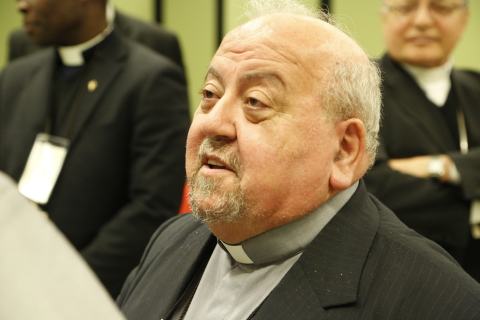
The Syrian Church refuses to die
 Peace as a prerequisite to any other action in favour of Syria: is the opinion of Bishop Samir Nassar, Maronite Archbishop of Damascus, during the convention of the Bishop friends of the Focolare held in Castelgandolfo from 23to 26 February, on the eve of the ceasefire in the Country. It is Bishop Nassar’s second time to attend this event on the hills of Rome and he said: “the first meeting had enriched me so much that I decided to return… I come from Damascus, a place tormented by violence and war, and this is a break which allows me, with my brother bishops and the attention of the Focolare, to look beyond, and have a more global vision of the future of the world, the Church, and Christians in the Middle East. Thus it is fraternal support which this event gives me, for the life of my diocese.” In the face of the war conditions his country is undergoing, Bishop Nassar forcefully stresses that “the Church of Syria refuses to die and is holding onto the hope of concrete signs. In 2015, for example, we started to build three chapels precisely when the people were leaving, to imbue hope to the faithful in the outskirts and where people no longer came to the cathedral for security reasons. We keep hope alive also through the vocations: there are young priests and seminarians who arrive, and this a sign of vitality and hope for the future.”
Peace as a prerequisite to any other action in favour of Syria: is the opinion of Bishop Samir Nassar, Maronite Archbishop of Damascus, during the convention of the Bishop friends of the Focolare held in Castelgandolfo from 23to 26 February, on the eve of the ceasefire in the Country. It is Bishop Nassar’s second time to attend this event on the hills of Rome and he said: “the first meeting had enriched me so much that I decided to return… I come from Damascus, a place tormented by violence and war, and this is a break which allows me, with my brother bishops and the attention of the Focolare, to look beyond, and have a more global vision of the future of the world, the Church, and Christians in the Middle East. Thus it is fraternal support which this event gives me, for the life of my diocese.” In the face of the war conditions his country is undergoing, Bishop Nassar forcefully stresses that “the Church of Syria refuses to die and is holding onto the hope of concrete signs. In 2015, for example, we started to build three chapels precisely when the people were leaving, to imbue hope to the faithful in the outskirts and where people no longer came to the cathedral for security reasons. We keep hope alive also through the vocations: there are young priests and seminarians who arrive, and this a sign of vitality and hope for the future.”
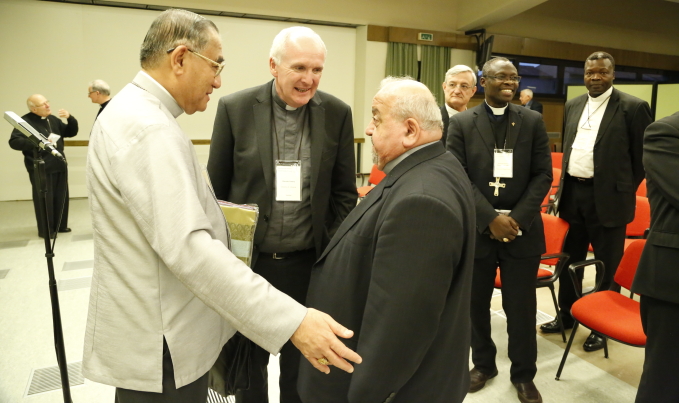 The Archbishop expressed his gratitude also for the work of the Focolare Movement, that continues to be present in Syria despite the conflict: “For what I see in Damascus, the Movement is really doing an excellent job with the youth, families and children – he affirmed. It encourages the people to see the future with faith and hope: this is support for the community, a sign of the Spirit that helps us pursue this path.» Also in this regard, the news of the arrival of a new focolarina in Damscus «is another sign that in Syria there is a Church that looks to the future and is not afraid to die. Your presence is a sign of hope and renewal, and I thank you all so much». It is a sign which is even more important in a country whose «people are tired of the war, suffering, and poverty, and the news is not encouraging. Our mission as the Church and as the Focolare is to give courage.”
The Archbishop expressed his gratitude also for the work of the Focolare Movement, that continues to be present in Syria despite the conflict: “For what I see in Damascus, the Movement is really doing an excellent job with the youth, families and children – he affirmed. It encourages the people to see the future with faith and hope: this is support for the community, a sign of the Spirit that helps us pursue this path.» Also in this regard, the news of the arrival of a new focolarina in Damscus «is another sign that in Syria there is a Church that looks to the future and is not afraid to die. Your presence is a sign of hope and renewal, and I thank you all so much». It is a sign which is even more important in a country whose «people are tired of the war, suffering, and poverty, and the news is not encouraging. Our mission as the Church and as the Focolare is to give courage.”
As to the international communities, Bishop Nassar saw with regret that “the world says it is very concerned about Syria, but each one says so in his own way: so much so that in the end nobody really is working for the interest of the Country.» And he launched an appeal: «Stop the war. If the war does not stop, all we are doing is useless. Let’s bring back peace and then rebuild charity and love of the Church. As Pope Francis himself says: the poor do not have a religion, only man counts. We are first of all awaiting steps towards peace, the rest is secondary.”
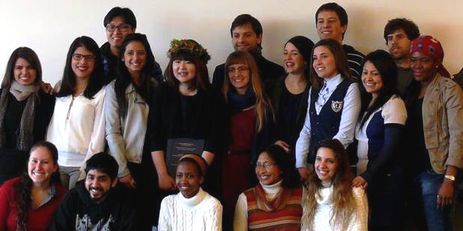
The 100th degree conferred by Sophia University
 “When the administrative staff informed us that it was the 100th degree to be conferred, I thought it couldn’t have been otherwise. Each graduate has marked an important moment in our journey, but the fact that the hundredth dissertation was to be conferred precisely on Akie Otomo, was significant for us.” comments Judith Povilus, vice-president of Sophia University Institute, who accompanied the academic path of Akie Otomo and Yukie Ohi, two students of the Buddhist movement, Risshō Kōsei-kai, who have completed a degree in Foundations and Perspectives of a Culture of Unity. Yukie Ohi graduated in the summer semester last year, while on 11 February 2016 it was Akie Otomo’s turn. The success of her research was greeted by a warm applause emphasizing its appreciation by the whole academic community. The subject of the thesis, a comparison between “The hoza in Risshō Kōsei-kai” and “the life of unity in the spirituality of the Focolare Movement”, matured in a climate of mutual listening and acceptance with the active involvement of the two professors who guided the student: Anna Pelli, Professor of Philosophy, and Antonella Deponte, Professor of Psychology. “The focal point is of great interest as it deals with two such diverse associations, the Risshō Kōsei-kai and the Focolare Movement, yet their pulse beats as one: communion. And this was accomplished by implementing two unique practices: on the one hand the hoza, which is characteristic of the “cycle of compassion”, whereby a group of people meet to share their personal problems and find mutual support in the light of the teachings of Buddha, and on the other hand, the “spiritual communion” guided by the words of the Gospel, which makes it possible for people to share their experiences and to walk together towards God.” As the work progressed, it became increasingly clear that it could only be understood if channelled into the prophetic experience resulting from the meetings of dialogue between Nikkyo Niwano and Chiara Lubich, two eminent figures of the twentieth century: the first, the Buddhist founder and leader of Risshō Kōsei-kai, the only non-Christian observer at Vatican II; and the second, a Catholic woman who inspired a worldwide movement of spiritual renewal that speaks to the hearts of men and women of different faiths and cultures. Over the years, many similarities have led them to work together effectively for peace and mutual understanding between people and nations, reaching the point of giving their own particular experience of faith. Among other things, the thesis documents the exchange of correspondence between them, citing some paragraphs which allowed the Japanese student to focus in a surprising way on some of the cornerstones of the culture of unity, which, in her views, open up dialogue and sharing. “It was on this foundation,” says Professor Pelli, “that the intuition that guided Akie in her research took shape. In the process, each of us experienced the meeting point of that which is real dwelling in ourselves and the truth dwelling in the other; we discovered that this connection was something that in a certain way already belonged to us while at the same time it opened us up to broader perspectives. I am convinced that this experience is the fruit of being in this privileged place, at Sophia University, which strives daily to ensure that life and thought, intellectual pursuit and existential approach work towards a substantial converging towards the good, through the reciprocal gift of our diversity.” “I am very grateful for the time I spent in Sophia,” Akie concluded in her presentation. “Not only have I come closer to knowing Chiara Lubich’s thoughts, which I appreciate so much, but also to get to know more deeply the life and message of Nikkyo Niwano. I wish to take ahead this research. I want to be more committed in my daily life so that through the contribution of all religions, we can bring about harmony, unity and peace in the world.” Souce: Sophia University Institute Online
“When the administrative staff informed us that it was the 100th degree to be conferred, I thought it couldn’t have been otherwise. Each graduate has marked an important moment in our journey, but the fact that the hundredth dissertation was to be conferred precisely on Akie Otomo, was significant for us.” comments Judith Povilus, vice-president of Sophia University Institute, who accompanied the academic path of Akie Otomo and Yukie Ohi, two students of the Buddhist movement, Risshō Kōsei-kai, who have completed a degree in Foundations and Perspectives of a Culture of Unity. Yukie Ohi graduated in the summer semester last year, while on 11 February 2016 it was Akie Otomo’s turn. The success of her research was greeted by a warm applause emphasizing its appreciation by the whole academic community. The subject of the thesis, a comparison between “The hoza in Risshō Kōsei-kai” and “the life of unity in the spirituality of the Focolare Movement”, matured in a climate of mutual listening and acceptance with the active involvement of the two professors who guided the student: Anna Pelli, Professor of Philosophy, and Antonella Deponte, Professor of Psychology. “The focal point is of great interest as it deals with two such diverse associations, the Risshō Kōsei-kai and the Focolare Movement, yet their pulse beats as one: communion. And this was accomplished by implementing two unique practices: on the one hand the hoza, which is characteristic of the “cycle of compassion”, whereby a group of people meet to share their personal problems and find mutual support in the light of the teachings of Buddha, and on the other hand, the “spiritual communion” guided by the words of the Gospel, which makes it possible for people to share their experiences and to walk together towards God.” As the work progressed, it became increasingly clear that it could only be understood if channelled into the prophetic experience resulting from the meetings of dialogue between Nikkyo Niwano and Chiara Lubich, two eminent figures of the twentieth century: the first, the Buddhist founder and leader of Risshō Kōsei-kai, the only non-Christian observer at Vatican II; and the second, a Catholic woman who inspired a worldwide movement of spiritual renewal that speaks to the hearts of men and women of different faiths and cultures. Over the years, many similarities have led them to work together effectively for peace and mutual understanding between people and nations, reaching the point of giving their own particular experience of faith. Among other things, the thesis documents the exchange of correspondence between them, citing some paragraphs which allowed the Japanese student to focus in a surprising way on some of the cornerstones of the culture of unity, which, in her views, open up dialogue and sharing. “It was on this foundation,” says Professor Pelli, “that the intuition that guided Akie in her research took shape. In the process, each of us experienced the meeting point of that which is real dwelling in ourselves and the truth dwelling in the other; we discovered that this connection was something that in a certain way already belonged to us while at the same time it opened us up to broader perspectives. I am convinced that this experience is the fruit of being in this privileged place, at Sophia University, which strives daily to ensure that life and thought, intellectual pursuit and existential approach work towards a substantial converging towards the good, through the reciprocal gift of our diversity.” “I am very grateful for the time I spent in Sophia,” Akie concluded in her presentation. “Not only have I come closer to knowing Chiara Lubich’s thoughts, which I appreciate so much, but also to get to know more deeply the life and message of Nikkyo Niwano. I wish to take ahead this research. I want to be more committed in my daily life so that through the contribution of all religions, we can bring about harmony, unity and peace in the world.” Souce: Sophia University Institute Online
